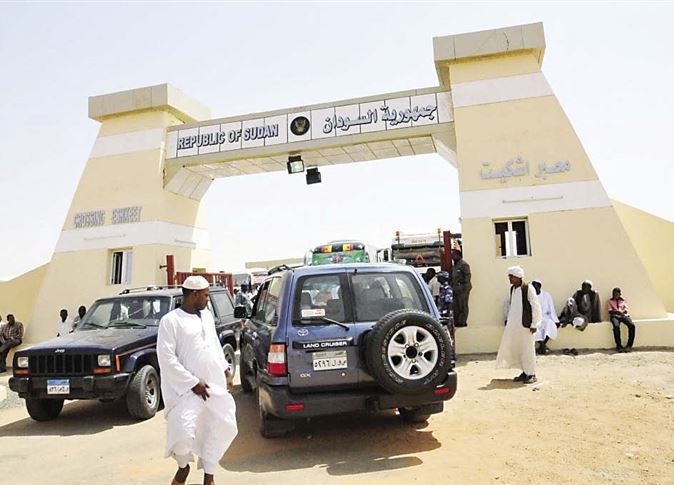
The High Dam port has for years been the only link between Egypt and Sudan, with regards to the movement of passengers and goods, in the form of the boats and barges run by the Nile Valley Navigation Authority (NVNA). The NVNA is an Egyptian-Sudanese body that has monopolized the river traffic between the two countries for years.
But the port has been affected by the April 30 opening of the Qastal-Ashkit landport between Egypt and Sudan, which provides an overland route that lasts between three and five hours, compared to the 17-hour boat ride that had previously been the only option.
Al-Masry Al-Youm is monitoring the impact of the landport on river traffic between Egypt and Sudan, particularly since another landport, the Arqin Crossing (also called the Continental Crossing as it would link Alexandria to Cape Town), will open soon. Once that port opens, regulations ensuring fair competition and equal opportunity for the three ports will be required.
Asaad Abdel Meguid, head of the High Dam port, says the Qastal-Ashkit landport not only reduces the length of the journey, but also reduces the cost, from LE350 to LE150. “We are now unable to compete,” he says.
Will Arqin be a knockout?
Passenger Mostafa al-Badri believes that the new Arqin Crossing will knockout the competition as it will further reduce time and cost.
But Abubakr al-Halafawy, a Sudanese merchant, does not believe it will affect the other two ports. “Traders normally bring with them large loads of goods that only boats can carry due to the limited capacities of buses,” he says. “Also, land transport is more expensive.”
He said the procedures of the river port are much faster. “Delays in the land ports can damage perishable goods,” he says.
The Qastal Crossing
Mansour Atta, an exporter, says there are no storing facilities at the Qastal Crossing, which could damage the goods. Also, certain goods are not allowed to pass, which forces the importers to retrieve them, thereby incurring further costs.
The High Dam porters also find that the Qastal Crossing has had a negative impact on the area. They say their work has declined since the Qastal port opened, as their are fewer passengers.
“We are 250 porters,” says Sayed Bastawy, explaining that there used to be two trips per week, each of which carried 700 passengers. “Now there is only one trip a week with a maximum of 100 passengers.”
Mohamed al-Amin, another porter, says it was the porters who protected the port during the state of lawlessness after the revolution. “Now, nobody cares about us,” he says. “The governor had promised to finance our syndicate, but nothing has happened yet.”
Complete restructuring needed
Hashim Awad, a board member of the NVNA, says the body needs complete restructuring. “We have more than 400 workers, which is much more than we need,” he says, adding that the Arqin Crossing will put the two other ports out of business if they do not improve their services.
Others agree and have formulated a strategy for improvement.
Ahlam Abdel Gelil, Sudan’s Consul General in Aswan, says there are plans to develop the NVNA and supply it with more efficient boats and barges. Additionally, fees will be unified for both ports in order for them to improve their services.
Al-Sirr al-Amin, vice president of the NVNA, says the duplication of customs should also be cancelled. “It makes no sense to pay customs on both the Egyptian and Sudanese sides,” he says, adding that fees and charges should also be paid only once. “Here, you pay when you go in and when you get out,” he says.
Amin says that using the river port boosts the economy. “Boat passengers usually spend the night in Aswan, which is good for the hotels and the restaurants, as opposed to bus passengers who go directly to their final destination,” he says.
Edited translation from Al-Masry Al-Youm
